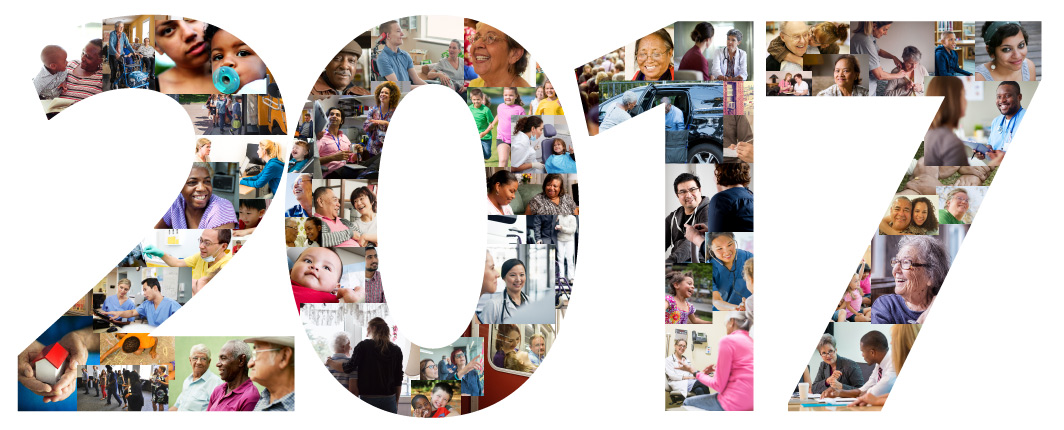
In 2017, CHCS published a wide range of resources focused on advancing innovations in health care delivery for low-income Americans. We invite you to explore our most popular downloads of the last year. We look forward to continuing our work with you in 2018!
- Moving Toward Value-Based Payment for Medicaid Behavioral Health Services – This brief describes how states and their Medicaid managed care organizations are incorporating value-based payment arrangements into behavioral health programs.
- Screening for Social Determinants of Health in Populations with Complex Needs: Implementation Considerations – This brief examines how provider organizations participating in CHCS’ Transforming Complex Care initiative are assessing and addressing social determinants of health among populations with complex needs.
- Integrating Community Health Workers into Complex Care Teams: Key Considerations – This technical assistance brief examines effective strategies for including community health workers in complex care teams.
- Preventing Early Childhood Adversity Before It Starts: Maximizing Medicaid Opportunities – This blog post highlights the potential role that Medicaid can play in supporting high-risk, low-income families and introduces CHCS’ Medicaid Early Childhood Innovation Lab.
- 10 Key Ingredients for Trauma-Informed Care – This infographic explores three questions: “What is trauma?”, “What is the impact of trauma on health?”, and “How can providers become trauma-informed?”
- Using a Cost and Utilization Lens to Evaluate Programs Serving Complex Populations: Benefits and Limitations – This brief takes a close look at the limitations of relying solely on cost and utilization to evaluate complex care programs and reviews alternative metrics for assessing the value of complex care models.
- Strengthening Medicaid Long-Term Services and Supports in an Evolving Policy Environment: A Toolkit for States – This toolkit provides concrete policy strategies, operational steps, and federal and state authorities that states may use to advance long-term services and support reforms.
- Bridging Community-Based Human Services and Health Care – These four case studies illustrate the potential for diverse and effective models between health care and community-based organizations, particularly those that serve vulnerable populations.
- Disruptive Innovation in Medicaid Non-Emergency Transportation – This brief outlines the current state of Medicaid non-emergency medical transportation services, its challenges, and opportunities for improvement.
- A Framework for Addressing Social Determinants of Oral Health in the Community – This technical assistance brief describes a framework for assessing and creating partnerships to improve social determinants related to oral health.
 In 2017, CHCS published a wide range of resources focused on advancing innovations in health care delivery for low-income Americans. We invite you to explore our most popular downloads of the last year. We look forward to continuing our work with you in 2018!
In 2017, CHCS published a wide range of resources focused on advancing innovations in health care delivery for low-income Americans. We invite you to explore our most popular downloads of the last year. We look forward to continuing our work with you in 2018!




